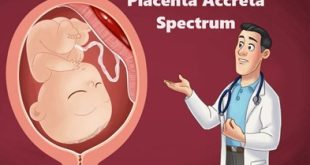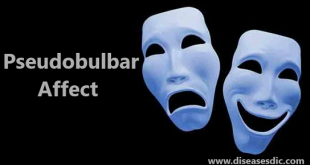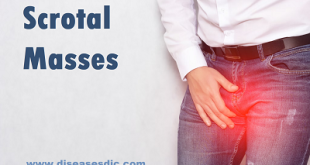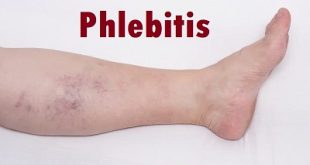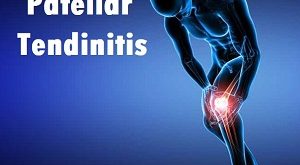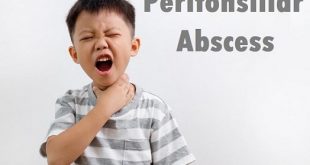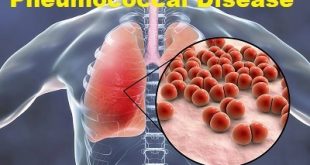What is Postorgasmic Illness Syndrome?
Postorgasmic illness syndrome (POIS) is a rare condition in which a person develops flu-like and allergy symptoms after orgasm, whether with a partner, through masturbation, or spontaneously during sleep. POIS typically is reported in males (after ejaculation), but females have rarely been reported to have symptoms of POIS. Symptoms may develop within seconds, minutes, or hours after orgasm, and usually last for 2 to 7 days before going away on their own. Possible symptoms vary from person to person, but more common symptoms include fatigue, weakness, headache, fever, mood changes, memory or concentration problems, stuffy nose, sore throat, and itching eyes.
The underlying cause of POIS is not known. Some scientists believe that in men, it is an autoimmune or allergic disorder that causes an inflammatory reaction to a substance in a man’s own semen. Others have proposed POIS may be caused by a chemical imbalance in the brain. There is no standard treatment for POIS, but some men have been treated with SSRIs, antihistamines, and/or benzodiazepines. POIS can cause severe distress in people with the condition and their partners.[3] Some people with POIS abstain from sexual activity or find that they need to schedule sex for a time when they can cope with the symptoms.
Epidemiology
The prevalence of POIS is unknown. POIS are listed as a rare disease by the American National Institutes of Health and the European Orphanet. It is thought to be underdiagnosed and underreported. POIS seems to affect mostly men from around the world, of various ages and relationship statuses.
Types of Postorgasmic Illness Syndrome
There appears to be two distinct categories of POIS; primary POIS, in which the symptoms are present from the first ejaculation in puberty (49%); and secondary POIS in which symptoms appear later in life (51%).
Risk factors
The chemical imbalances in the brain might be the physiologic basis for POIS with psychological conditions serving as risk factors.
Postorgasmic Illness Syndrome causes
The cause of POIS is unknown. Some doctors hypothesize that POIS is caused by an auto-immune reaction. Other doctors suspect a hormone imbalance as the cause. While other causes have been proposed as well, none of the proposed causes seem to fully explain the disease.
Allergy hypothesis
According to one hypothesis, “POIS is caused by Type-I and Type-IV allergy to the males’ own semen”.
POIS could also be caused by an auto-immune reaction not to semen itself, but to another substance that is released during ejaculation, such as to cytokines.
The allergy hypothesis has been disputed. According to one study, “IgE-mediated semen allergy in men may not be the potential mechanism of POIS”.
Hormone hypothesis
According to another hypothesis, POIS is caused by a hormone imbalance, such as low progesterone, low cortisol, low testosterone, elevated prolactin, hypothyroidism, or low DHEA.
POIS could be caused by a defect in neurosteroid precursor synthesis. In this case, the same treatment may not be effective for different sufferers. Different sufferers may have different missing precursors, ultimately leading to a deficiency of the same particular neurosteroid, causing similar symptoms.
Withdrawal hypothesis
It may be noted that the majority of POIS symptoms, including flu-like symptoms, fatigue, muscle pains, sweating, mood disturbances, irritability, poor concentration, and others are similarly caused during withdrawal from different drug classes and natural reinforcers. It’s actually unknown if there could be a relationship between hypersexuality, pornography addiction, compulsive sexual behavior, and POIS. Some evidence claims that POIS patients have a history of excessive masturbation in the early stage and it implicitly suggests that POIS could be a consequence of sex addiction. There is anecdotal evidence on porn addiction internet fora, that many men experience POIS like symptoms after ejaculation.
Other possibilities
POIS could also be caused by hyperglycemia or by chemical imbalances in the brain.
Sexual activity for the first time may set the stage for an associated asthma attack or may aggravate pre-existing asthma. Intense emotional stimuli during sexual intercourse can lead to an autonomic imbalance with parasympathetic over-reactivity, thereby causing the release of mast cell mediators that can provoke postcoital asthma and/or rhinitis in these patients.
It is also possible that, in different individuals, the causes of POIS are different. POIS could represent “a spectrum of syndromes of differing” causes.
Symptoms of Postorgasmic Illness Syndrome
Symptoms of POIS may “cluster” in one particular area (like the nose or throat), or they may be more general. Some of the most common symptoms include the following:
- Fatigue
- Weakness
- Headache
- Moodiness, irritability
- Fever
- Feeling excessively hot or cold
- Watery or itching eyes
- Blurry vision
- Stuffy nose
- Sore throat
- Coughing
- Muscle tension or pain
- Difficulty concentrating
Complications
The severe mental and psychosocial burden POIS can place on men affected by this disorder.
Patients affected by POIS have lower ejaculation frequency, despite their normal urge to engage in intercourse and intimacy. This leads to internal struggles between enjoying erotic activities and avoiding them for fear of ejaculation and the associated symptoms.
Furthermore, because ejaculation can decrease concentration, alertness, and physical capacity, many patients must plan ejaculations ahead of time to avoid inconveniences during everyday activities such as work or study.
Many young men with POIS might be hesitant to seek a romantic partnership owing to fears of stigma and lack of acceptance in abstaining from intercourse.
Diagnosis and test
Diagnosis of postorgasmic illness syndrome is based on the presence of one or more symptoms, which develop within seconds or a short span after each or most ejaculations. They last for around 2 to 7 days before resolving on their own. Reporting of clusters and early evaluation of symptoms postorgasmic illness syndrome also helps in timely diagnosis.
A skin prick test may be conducted to diagnose postorgasmic illness syndrome. This test should be carried out under the supervision of a doctor, as it can trigger postorgasmic illness syndrome symptoms which can cause severe reactions and need to be treated immediately in a hospital.
In another test, the patient is asked to stop masturbating, or having intercourse, right before the first genital sensations of a forthcoming ejaculation. In most cases, men notice improvement in the symptoms of postorgasmic illness syndrome with these changes.
Treatment and medications
At present, there is no single tactic for treating POIS. In some cases, to reduce the symptoms of Postorgasmic illness syndrome, desensitize the body with its own semen. The essence of this method is to reduce the body’s response to the allergen (in this case, sperm protein), as a result of repeated injections under the skin of small doses of sperm. The effect of this therapy can last up to 3 years. Vitamin B3 (nicotinic acid) helps to reduce the allergic reaction. Since the problem of POIS also has a psychological aspect, the treatment should be carried out in conjunction with a course of psychotherapy.
The list of remedies for member is affected by POIS, identified as possible factors in reducing POIS symptoms, even if the actual reason for the improvement could be the listed method, an unknown factor, or placebo
Anthistamines (various brand and dosage): Histamine is a hormone/chemical transmitter and important protein that is involved in local immune responses, regulates stomach acid production, and acts as a mediator in allergic reactions. During an orgasm, histamine is released and has been connected to the sex flush among women. However, men with high histamine levels may suffer from premature ejaculations. People reporting relief using Anthistamines before and after the orgasm seems consistent with Dr. Waldinger’s theory of immune response to autologous semen and suggests that histamine could potentially be a major factor in causing this syndrome.
Niacin (Vitamin B3 or nicotinic acid): has produced a range of results from ineffectiveness to moderate success to fully alleviating POIS symptoms.
Saw palmetto (is an extract of the fruit of Serenoa repens): Traditionally used to treat urinary and reproductive system problems, this extract has consistently yielded moderate relief of physical symptoms for various members.
Castration and Prostate Gland Size Reduction: One member underwent castration and surgically reduced the size of the prostate gland under the premise that reducing semen production would cure POIS. As a result, only dry ejaculation can be achieved where orgasm is reached without the production of seminal fluid and spermatozoa. This member claims that he no longer suffers from any POIS symptoms whatsoever. However, mild symptoms do recur when taken off medication that reduces prostate size, namely Avodart and Saw Palmetto. Symptoms last roughly 1 to 2 days.
Relora: Some have found Relora, a herbal supplement, to immensely improve symptoms and, in one case, completely resolve POIS. The mechanism of action is not known. However, the manufacturers claim that Relora reduces cortisol and thereby relieves stress. Based on the theoretical role of cortisol in POIS, the potential reduction of cortisol may be what leads to the relieving effects.
Phosphatidylserine (PS): is a phospholipid that naturally occurs in our cells. Interestingly, this supplement has relieved POIS symptoms to a small degree in terms of restoring concentration and clearing brain-fog in various sufferers. Manufacturers of PS openly claim it enhances communication between brain cells by increasing the number of receptor sites.
Fenugreek: a popularly used herb and spice. There is currently no scientific research that can directly link this compound to POIS as there is little active research on fenugreek. Strangely, some have found symptomatic relief by taking fenugreek supplements.
Garlic: Some have claimed that swallowing whole crushed garlic cloves has yielded some success at reducing symptoms. There is currently no scientific explanation.
Masturbation without ejaculation (Edging): This technique has been found to greatly reduce symptoms in terms of clearing brain fog, regaining mental and physical energy, and lifting one’s mood. It involves maintaining sexual stimulation until just before achieving orgasm; upon which time all stimulation is promptly ceased. This technique raises dopamine to high levels. However, since orgasm is not achieved, these levels theoretically remain high or gradually decline in which time psychological symptoms are greatly improved
Exercise and enhanced diet: High intensity workouts trigger the release of endorphins and other essential secretions within our bodies. Although short-term exercise has been found to aggravate physical exhaustion caused by POIS, long term exercise over a period of months has immensely helped a number of sufferers. In addition to regular, intense exercise, these sufferers also refined their diets to avoid sugar, significantly reduce fatty and greasy foods, and reduce the amount of processed foods. The combination of increased exercise and improved diet is the most common factor in those who have significantly improved their symptoms.
Low sugar diet: A low sugar diet alone has been found to improve symptoms.
Subsequent ejaculation: While symptomatic, a subsequent ejaculation has occasionally provided complete relief from symptoms, for several sufferers.
Testosterone patches: The strongest theory is connected to Dr. Marcel Wandinger’s recent Immunogenic Pathogensis theory. Testosterone supplementation in hypogonadal males was found to suppress cytokines, which is a signal carrier that activates the immune system. It may be conceivable that testosterone is indirectly suppressing the immune system and thus reducing symptoms as reported by the aforementioned six members
5-HTP (5-Hydroxytryptophan): This supplement is a naturally occurring precursor to serotonin and is marketed to boost levels of serotonin. It is used as an antidepressant, appetite suppressant, and sleep aid. It seems to help with the mental symptoms.
Prevention of Postorgasmic Illness Syndrome
Affected individuals typically avoid sexual activity, especially ejaculation, or schedule it for times when they can rest and recover for several days afterwards. In case post-coital tristesse (PCT) is suspected, patients could be treated with selective serotonin reuptake inhibitors.
 Diseases Treatments Dictionary This is complete solution to read all diseases treatments Which covers Prevention, Causes, Symptoms, Medical Terms, Drugs, Prescription, Natural Remedies with cures and Treatments. Most of the common diseases were listed in names, split with categories.
Diseases Treatments Dictionary This is complete solution to read all diseases treatments Which covers Prevention, Causes, Symptoms, Medical Terms, Drugs, Prescription, Natural Remedies with cures and Treatments. Most of the common diseases were listed in names, split with categories.
